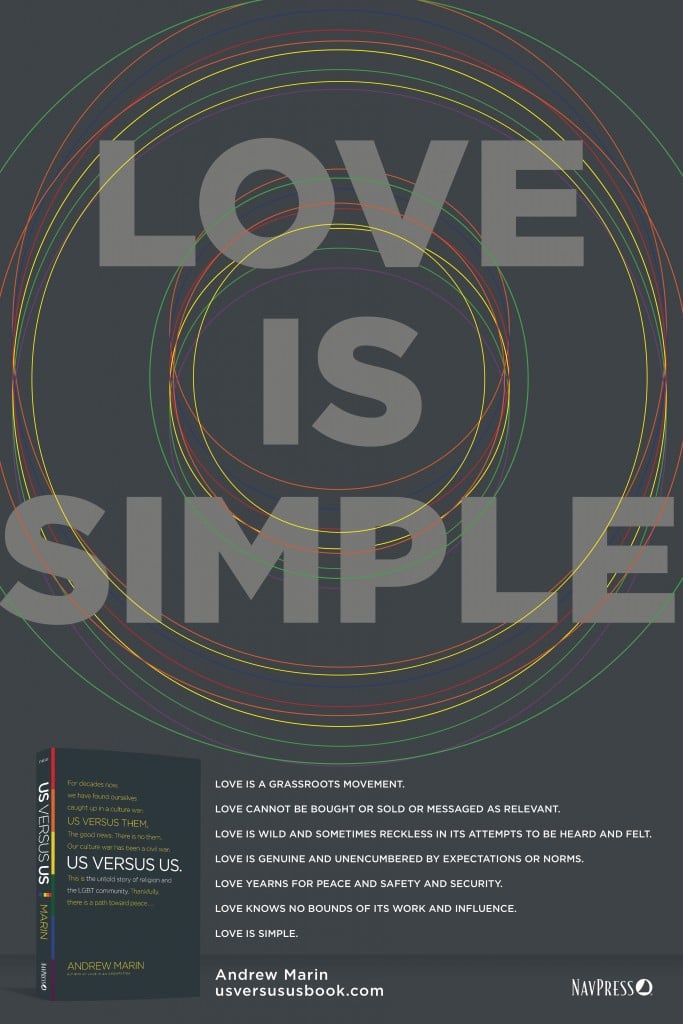 The following post is from Michael Overman. Michael is interning with us this year while working towards his Masters of Divinity at Garrett-Evangelical Theological Seminary. You can check out his blog at findingthebalance.net.
The following post is from Michael Overman. Michael is interning with us this year while working towards his Masters of Divinity at Garrett-Evangelical Theological Seminary. You can check out his blog at findingthebalance.net.
As I was growing up, one of the primary ways I was disciplined was through the mechanism of shame. When I would do something wrong, rather than making it clear that my actions were wrong, I was often made to believe that something was wrong with me, that something within my character was skewed and distorted, and that distortion was the reason for my mistakes of behavior. The problem with this type of discipline is that it strips a person of his or her agency. It tells them, “You make mistakes because it’s part of who you are. You don’t really have a choice.” However, when a person who has done wrong uses this same logic while being confronted by his or her accuser, they’re seen as irresponsible and illogical. “The Devil [inside you] didn’t make you do it. You chose to do it. You made your bed, and now you have to lie in it.”
We can’t have it both ways. Either we are inherently so controlled by our “sinful nature” that we bare no responsibility for our actions, or we are inherently good but have the capacity to act in wrong ways. Most of evangelical Christianity would say that we are only truly controlled and enslaved by sin up to the point of conversion, and beyond that, we bare full responsibility, a logic that stems from Romans 6. In a world where Christianity is no longer the leading faith tradition, it’s necessary to rethink this logic as it pertains to those who practice their faith in other contexts. Otherwise, we need to rethink our entire legal system and how we choose to hold someone accountable for their crimes.
So how does shame fit into all this? From my perspective, shaming often takes place under the guise of accountability but is more about control and power than it is about fostering right behavior. Shame is inherently harmful. As a form of punishment, it doesn’t actually foster right behavior or thought. Instead it devalues and dehumanizes the person being shamed. It says to them, “How can you live with yourself? I can’t believe you did that. What were you thinking? Were you even thinking at all? You should be ashamed of yourself.” Notice how the last one is not, “You should be ashamed of your actions.” What makes shame so harmful is that it makes it next to impossible to differentiate between actions and personhood. When a person faces shame, it doesn’t just evince shame over actions. It manifests shame over self.
Shame is also harmful because, after we experience it being imposed on us by others, it becomes far too easy for us to impose it upon ourselves. This is what I’ve been struggling with more recently. Shame for having an astronomical amount of debt. Shame for being gay. Shame for being partnered. Shame for not having a relationship with my parents. Shame for not spending as much time as I can with my partner, or for wanting to spend time with other people besides him (neither of which are imposed upon me by him). Shame for sleeping too much, for having too much wine, for smoking too much when I’m stressed, for not communicating or being more assertive. Here’s the thing about shame: it’s a boulder that has the capacity to snowball and grow larger and larger until we can no longer bear its cumbersome load. Without facing it, it can crush us.
It’s important to understand that what I’m not saying here is that we should not be held accountable to our actions. In fact, I think we all need some form of accountability in our lives. Without accountability, we risk becoming stunted or fragmented in our natural course of development. Without someone to reflect back to me a realistic image of who I am and how I live, I stand the chance of becoming disillusioned about myself and my actions. But the common misnomer is that accountability requires shame. This is a lie, and a dangerous one at that. Shame, in my opinion, actually hinders what accountability is supposed to do. Rather than catalyzing thoughtfulness, reflection, and change, shame puts on a set of blinders with a funhouse mirror in front of them. Not only does shame keep you from seeing the bigger picture, but it is a coerced reflection using a mirror that does not reflect reality back to the viewer.
Shame isn’t so much about what a person says to us as it is about how he or she says it. There’s a demeaning, dehumanizing way to ask a person, “Why did you do that?” and there’s a kind, thoughtful, reflective way of asking the same question. In this sense, accountability is not only about the person being held accountable but also about the person enacting accountability. For healthy accountability to take place, the person enacting it must have an awareness of the one they are holding accountable as well as an awareness of self. Not only should they have awareness, but there needs to also be respect. Without both awareness and respect, the doorway to shame is left open.
Shame is a reality that we cannot escape, for as long as humans have existed, for as long as the world has been broken, shame has lived. We all face it in some way, shape, or form. Brené Brown, one of my favorite researchers and speakers for TED, spent six years researching shame before her work led her into the topic of vulnerability. In her most recent talk, Listening to Shame, she says, “You gotta dance with the one who brung ya… I did not learn about vulnerability and courage and creativity and innovation. I learned about these things from studying shame.” She discusses how, recently, there’s been a national if not global call to talk about and face the issue of race. She continues, “You cannot talk about race without talking about privilege. And when people start talking about privilege, they get paralyzed by shame.” That’s what shame does when it goes unchecked: it cripples and debilitates. We all have shame, and when we go through life without naming and embracing our shame, it cages us and limits us from becoming our true selves.
Teddy Roosevelt once said, “It is not the critic who counts: not the man who points out how the strong man stumbles or where the doer of deeds could have done better. The credit belongs to the man who is actually in the arena, whose face is marred by dust and sweat and blood, who strives valiantly, who errs and comes up short again and again, because there is no effort without error or shortcoming, but who knows the great enthusiasms, the great devotions, who spends himself for a worthy cause; who, at the best, knows, in the end, the triumph of high achievement, and who, at the worst, if he fails, at least he fails while daring greatly, so that his place shall never be with those cold and timid souls who knew neither victory nor defeat.”
Brown goes on to remark that, if we walk into the arena of life having mustered up the courage to do, to live, when we look out into the stands, the critic we most often face is ourselves. Even when we experience being shamed by someone else, the nature of shame is to become internalized. The voice of the other becomes the voice of myself, and most often, that voices either says, “You’re not good enough,” or, “Who do you think you are?” Shame is different from guilt, she says, in that shame is about self whereas guilt is about behavior. Guilt, or in dogmatic terms, conviction, is meant to affect change. Shame, on the other hand, leaves its victim bloody and bruised, often unable to move for long periods of time.
In the end, as individuals, as a society, and as the church, we need to learn to stop using shame as a means of catalyzing transformation. Shame cannot perform this task. It’s not in shame’s nature. Instead, we must learn to reconceptualize relationship, both internal and external, and reorient ourselves towards love, towards hope, towards faith, and towards unhindered, unstunted wholeness. Shame keeps us from being whole. Love makes us whole. Therein lies the difference, and therein lies our goal.
Much love.
















